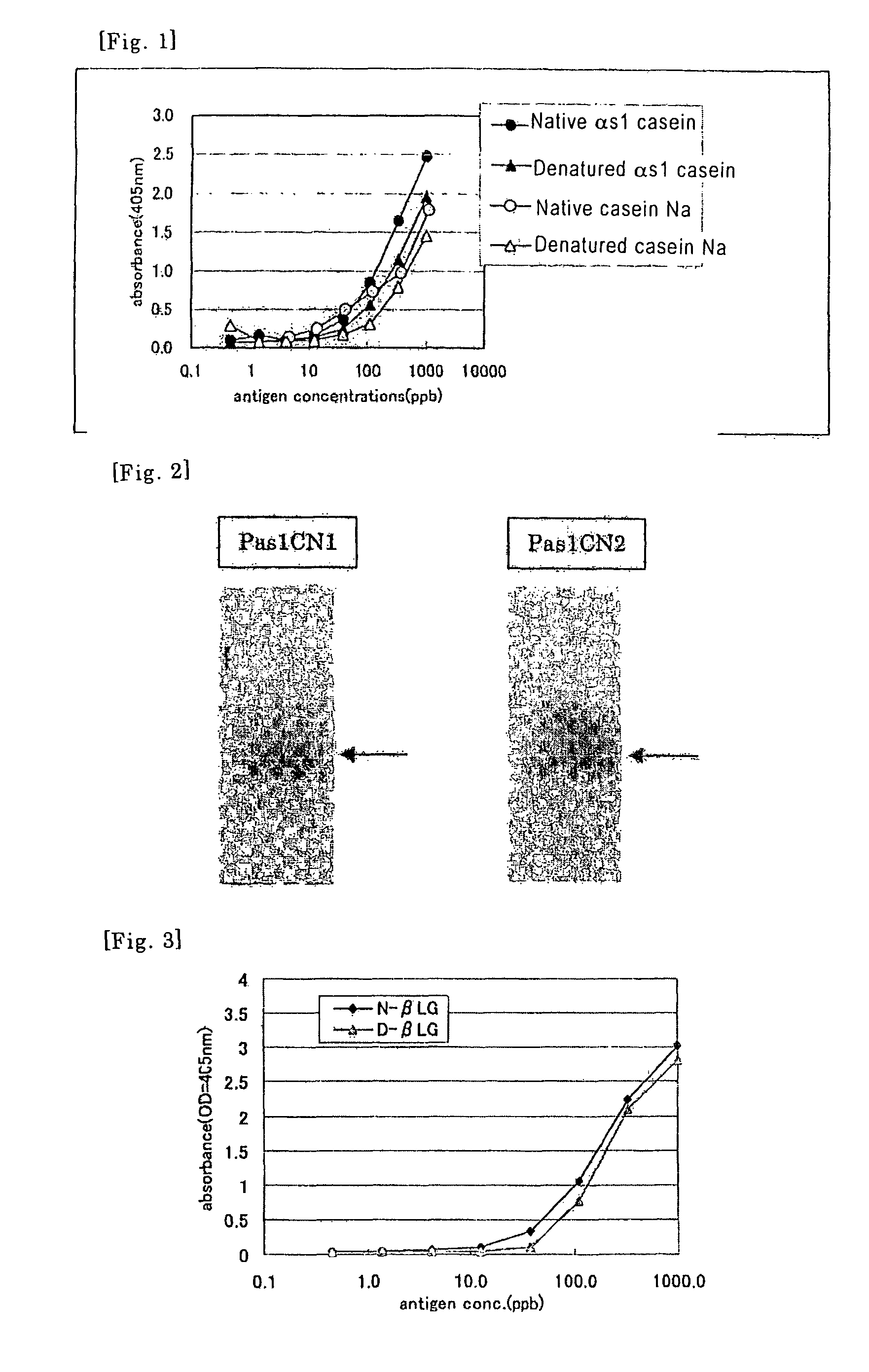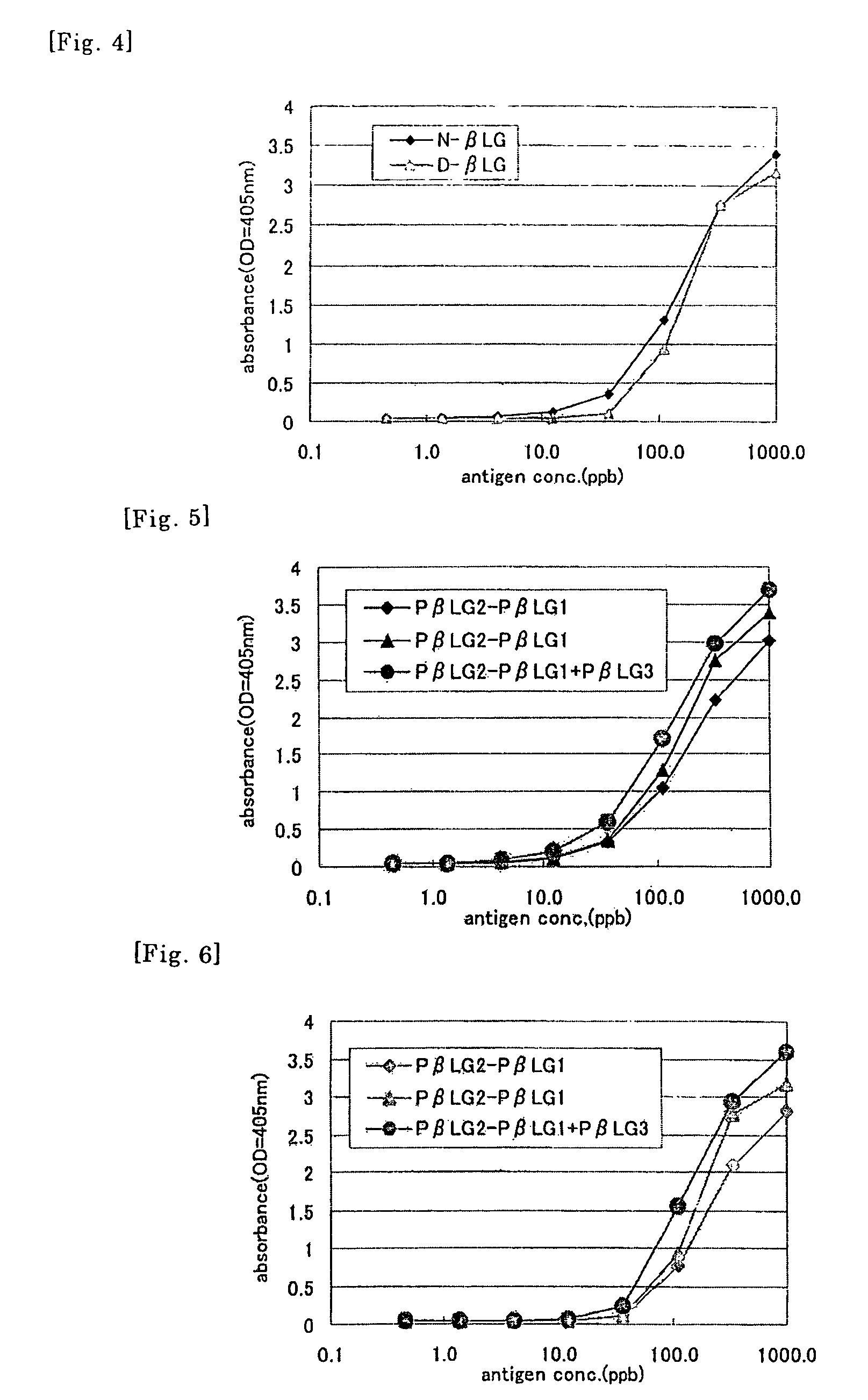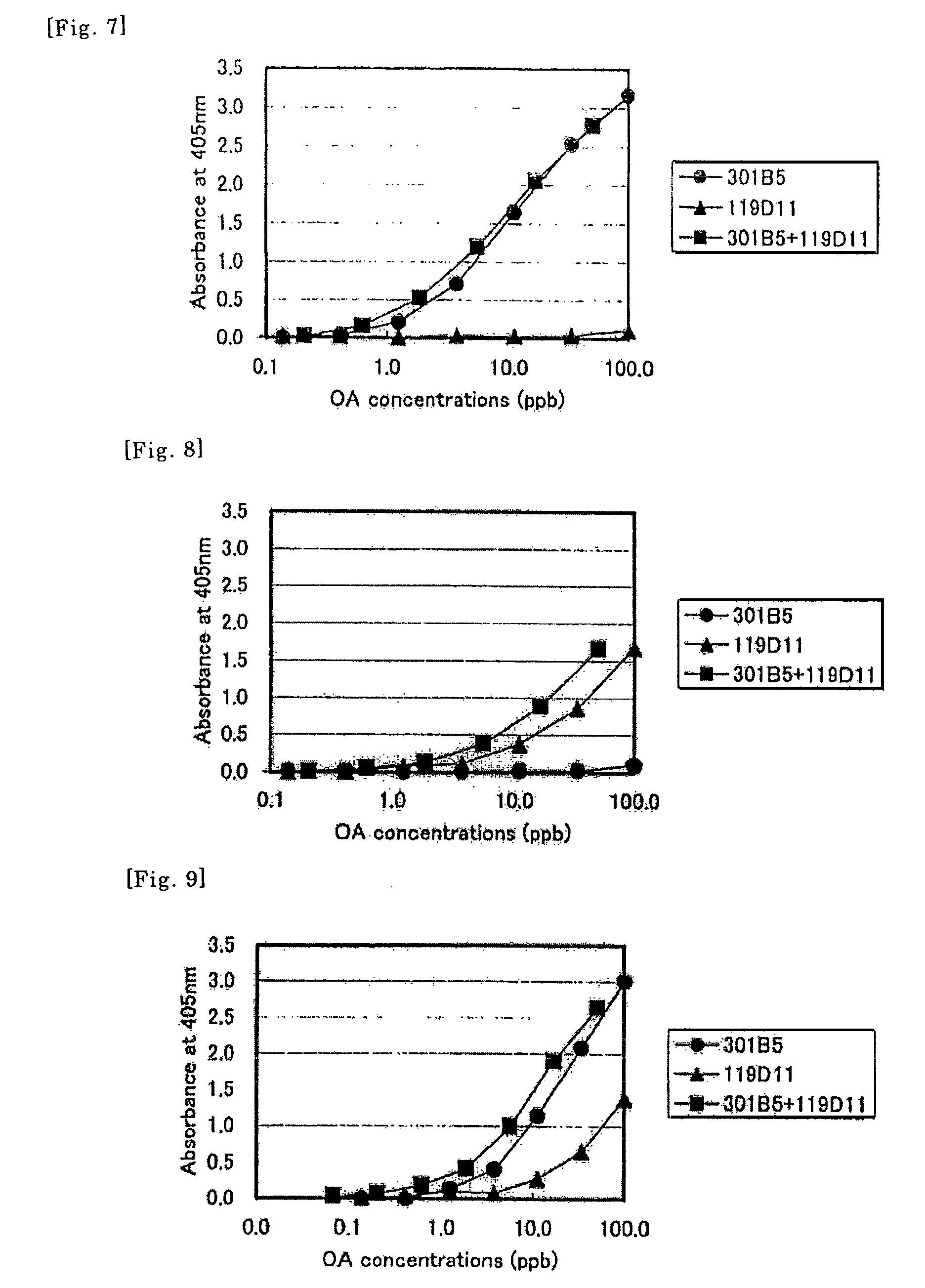Method of detecting allergen
a detection method and allergen technology, applied in the field of milk allergen detection, can solve the problems of severe problems in the medical field, quantitative levels differ before and after heating, etc., and achieve the effect of high sensitivity
- Summary
- Abstract
- Description
- Claims
- Application Information
AI Technical Summary
Benefits of technology
Problems solved by technology
Method used
Image
Examples
example 1
1. Establishment of Anti-αs1 Casein Monoclonal Antibodies
1-1 Materials and Methods
1) Preparation of αs1 Casein (Hereinafter Referred to as “αCN”)
[0065]Crude fractions of αCN were obtained from fresh milk, according to Zittle (1959). The crude fractions were further purified by using TSK gel DEAE 650S (TOSOH) with a linear gradient (0 to 0.3 M) of NaCl containing 50 mM of imidazole-HCl buffer solution (pH 6.4) and 4M of urea. The purified αCN fraction was dialyzed with distilled water and then lyophilized. A 0.1% solution of the lyophilizates was prepared with saline, which was aliquoted in 1 ml-volume Eppendorf tubes at 500 μl per tube, stored by freezing at −20° C. until immunization, and the resultant was used as an antigen solution.
2) Immunization
[0066]As test animals, 5 BALB / c mice (CLEA Japan) of 6 weeks-old were used. For the primary immunization, an emulsion, prepared by adding a complete Freund's adjuvant (Difco) to an Eppendorf tube filled with 500 μl of 0.1% αCN at an equa...
example 2
1. Establishment of MAbs Bondable to Denatured / Native Ovalbumin
1-1 Materials and Methods
1) Preparation of Chicken Ovalbumin (Hereinafter Sometimes Referred to as “OA”)
[0118]Only albumen was collected from fresh chicken eggs, homogenized without beating, saturated sulfate ammonium of an equal amount was added. The resultant was filtrated with a filter paper No. 1 (Advantec Toyo). 0.5 M of sulfate was added to the obtained filtrate, adjusted to pH 4.6 and allow to rest overnight. The precipitates obtained by centrifugation at 8000 rpm×20 min were dissolved in distilled water, and were recrystallized similarly, to obtain crude OA fractions. Crude OAs were further purified by ion exchange chromatography by using TSK gel DEAD 650S (Tosoh). For transfer phase, 50 mM of imidazol-chloride buffer solution (pH 6.4) was used, and OA was fractionated with 0 to 0.3 M linear gradient of NaCl. The resultant was desalted by dialysis, and lyophilized. The lyophilized OAs were used to prepare 0.1% OA...
example 3
1. Establishment of MAbs Bondable to Denatured / Native Flour Gliadin
1-1 Materials and Methods
1) Preparation of Flour Gliadin (Hereinafter Referred to as “GL”)
[0156]2-fold amount of n-butanol was added to flour for defatting, and the resultant was allowed to air dry for overnight. 2-fold amount of 0.1% sodium chloride solution was added to the obtained defatted flour and the resultant was centrifuged at 10,000 rpm×15 min. 20-fold amount of 0.01 N acetate was added to the obtained precipitates, and the mixture was stirred and centrifuged at 10,000 rpm for 15 min. The obtained supernatant was dialyzed with distilled water and lyophilized. Ethanol was added to the obtained lyophilizates to 70%, and the resultant was centrifuged at 10,000 rpm×15 min. The obtained supernatant was dialyzed with distilled water to obtain crude GL fractions. The GL fractions were further purified by gel filtration using Sephacryl S-200HR (Amersham Biosciences). For transfer phase, Gls were fractionated with 0...
PUM
 Login to View More
Login to View More Abstract
Description
Claims
Application Information
 Login to View More
Login to View More - R&D
- Intellectual Property
- Life Sciences
- Materials
- Tech Scout
- Unparalleled Data Quality
- Higher Quality Content
- 60% Fewer Hallucinations
Browse by: Latest US Patents, China's latest patents, Technical Efficacy Thesaurus, Application Domain, Technology Topic, Popular Technical Reports.
© 2025 PatSnap. All rights reserved.Legal|Privacy policy|Modern Slavery Act Transparency Statement|Sitemap|About US| Contact US: help@patsnap.com



